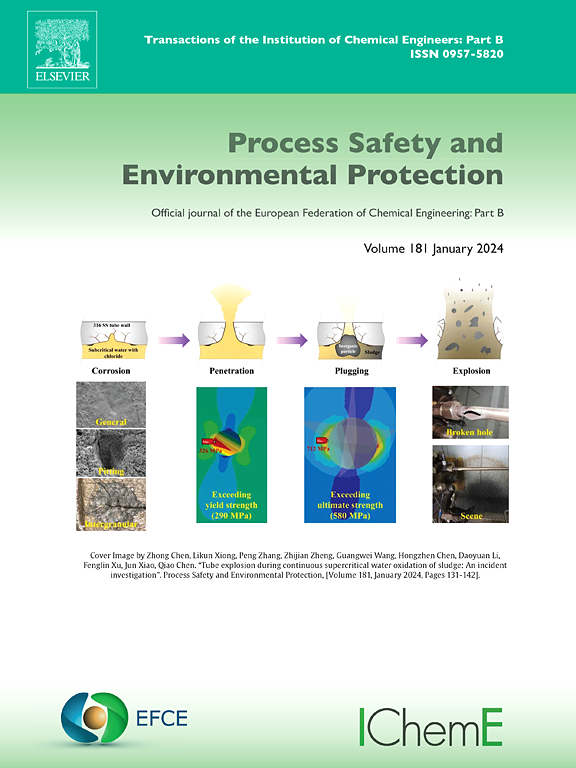Research on extraction of valuable metals from solid waste by deep eutectic solvents - A review
IF 6.9
2区 环境科学与生态学
Q1 ENGINEERING, CHEMICAL
引用次数: 0
Abstract
Traditional metal recycling methods urgently need improvement due to high energy consumption and environmental pollution issues. Against this backdrop, developing a reusable, novel green solvent from eco-friendly raw materials through simple preparation methods has become crucial. Deep eutectic solvents (DES) are considered an ideal alternative to traditional organic solvents due to their tunable polarity, low toxicity, environmental friendliness, and ease of synthesis. DES can effectively extract metals from complex waste systems through selective dissolution and formation of metal complexes, especially in recovering valuable metals such as lithium, nickel, and cobalt from waste lithium batteries and other waste materials. Its structural design allows DES to efficiently and accurately recover target metals, showcasing broad application potential in solid waste recycling.
求助全文
约1分钟内获得全文
求助全文
来源期刊

Process Safety and Environmental Protection
环境科学-工程:化工
CiteScore
11.40
自引率
15.40%
发文量
929
审稿时长
8.0 months
期刊介绍:
The Process Safety and Environmental Protection (PSEP) journal is a leading international publication that focuses on the publication of high-quality, original research papers in the field of engineering, specifically those related to the safety of industrial processes and environmental protection. The journal encourages submissions that present new developments in safety and environmental aspects, particularly those that show how research findings can be applied in process engineering design and practice.
PSEP is particularly interested in research that brings fresh perspectives to established engineering principles, identifies unsolved problems, or suggests directions for future research. The journal also values contributions that push the boundaries of traditional engineering and welcomes multidisciplinary papers.
PSEP's articles are abstracted and indexed by a range of databases and services, which helps to ensure that the journal's research is accessible and recognized in the academic and professional communities. These databases include ANTE, Chemical Abstracts, Chemical Hazards in Industry, Current Contents, Elsevier Engineering Information database, Pascal Francis, Web of Science, Scopus, Engineering Information Database EnCompass LIT (Elsevier), and INSPEC. This wide coverage facilitates the dissemination of the journal's content to a global audience interested in process safety and environmental engineering.
 求助内容:
求助内容: 应助结果提醒方式:
应助结果提醒方式:


